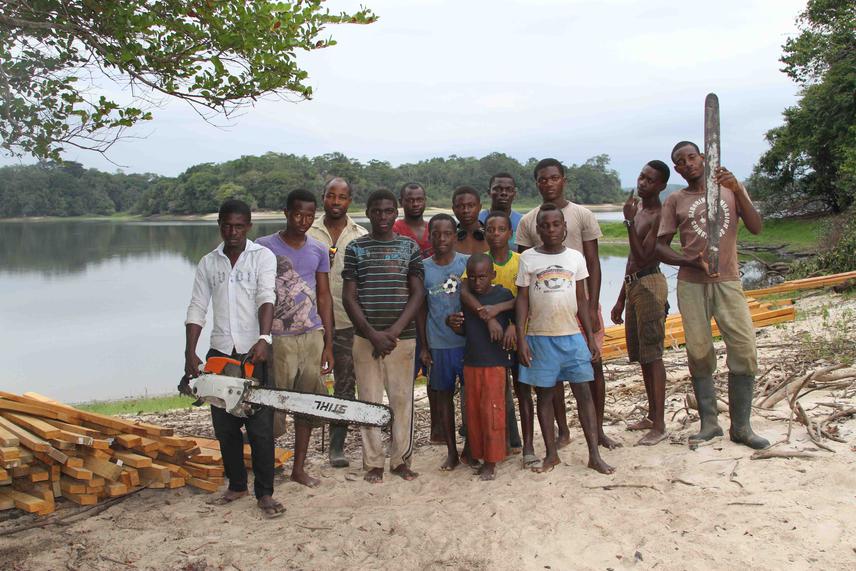Heather Arrowood
Other projects
27 Jan 2014
Team Capacity Building at Tsam Tsam and Development of a Community-Based Ecotourism Circuit in Gabon
The Pilot Project will explore the creation of an ecotourism site on Tsamtsam Island in Lake Oguemoué near Lambaréné, Gabon. Our aim is to determine if a model ecotourism operation is feasible and to develop a business plan and an action plan to move the project forward.

The chain of lakes to the south of Lambaréné hosts a diversity of Congo Basin Forest species. In 2009 the area was designated a Ramsar Wetland of International Importance. The lakes contain populations of typically saltwater fish that have adapted to life in freshwater and islands host nesting colonies of rare birds. Critically endangered wildlife can be found in the surrounding forests including gorillas, chimpanzees, forest elephants, and giant pangolin. One of the largest remaining populations of manatees in Africa can also be found in the chain of lakes. Despite efforts in the past, the area is not currently under formal protection and biodiversity is threatened from bushmeat hunting, unsustainable logging, and over-fishing. People living in villages bordering the chain of lakes are reliant on subsistence fishing. They supplement their incomes with hunting to supply meat to bushmeat markets and live animals to the black market for trade.
One alternative way that has been proposed by members of Tsamtsam Village to supplement incomes is to create a model ecotourism operation in an effort to reduce hunting pressure. Potential income sources could include creating a camping excursion site, hiring animal trackers to lead ecotourism clients with bonuses paid for each time animals are found alive, creating a cooperative of women to cook for ecotourism clients, and creating cultural presentations for clients. The benefits of such an operation would include creating economic incentives to keep animals alive; disseminating information to tourists about ecology, conservation, and local culture; attracting much needed attention to the area; and fostering collaboration with researchers and students on research projects. Ideally, the Pilot Project will lead to the creation of a model operation to inspire future tourism development in Gabon and set best practice standards for the industry. To build such an operation though, a careful feasibility study will be completed in close consultation with local stakeholders that will result in an action plan to move the project forward if appropriate and a business plan to ensure sustainability.
The Pilot Project will target seven steps:
1) Identify the needs/wants of the local communities and community-proposed solutions,
2) Define target market and appropriate scale of operations,
3) Identify and develop potential collaborations,
4) Collect interpretive materials,
5) Train key counterparts on ecotourism and hospitality,
6) Write a basic Business Plan,
7) Develop Action Plan for moving forward.